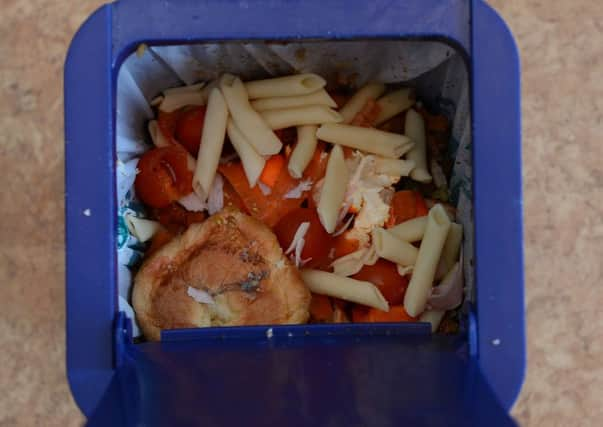David Thomson: Protecting environment gives ample food for thought


Scotland’s innovative food and drink industry has always been at the forefront of the sustainability agenda, driving positive change to reduce the impact of food production on our cherished environment. Our food and drink manufacturing businesses are also important to Scotland’s economy – contributing £1.7 billion in gross value added and providing 34,000 high quality jobs.
As the voice of the food and drink manufacturing industry in Scotland, the Scottish Food and Drink Federation (SFDF) welcomes the Scottish Government’s ambitious new food waste target.
Advertisement
Hide AdAdvertisement
Hide AdThe Scottish Government’s environment secretary, Richard Lochhead, has pledged to cut food waste across the whole supply chain by a third by 2025. He has said this could save businesses and households across the country at least £500 million. SFDF is keen to work with government, industry and other stakeholders to help make this target a reality. In particular we can share examples of best practice from our members who are reducing their environmental impact and saving money at the same time.
Ivan Wood & Sons, a wholesale merchant and processor of fruit and vegetables based in Fife, is a company that other food and drink businesses can look to for inspiration on how to become more sustainable. The business sends zero food and packaging waste to landfill – their vegetable peels and trimmings are sent to local farms free of charge to feed livestock and all paper, cardboard and plastic containers are recycled. Malcolm Wood, the company’s managing director, has gone one step further – he designed and was granted a UK patent for his Peel Tech water filtration system. The system allows waste to be separated from water, meaning there is no waste discharged into drains. Water, which is up to 100 per cent starch-free, can then be recycled along with potato peel, either in a bio digester system or further processed for animal feed. The company is now beginning to manufacture this multi award-winning product so that more companies can make use of this innovative technology.
This food waste target was announced as part of the Scottish Government’s wider Circular Economy Strategy: Making Things Last. A circular economy is where we keep products in use for as long as possible. The strategy sets out the early priorities for action in the areas where the Scottish Government feels Scotland is in a position to make fast progress and where there is scope to deliver the most significant environmental and economic benefits, including food and drink which is recognised as a priority industry in Scotland.
The Scottish Government’s vision is for consumers to find it easy to recycle nearly all of their waste. This ambition is not a million miles away, particularly given the recent announcement that the Convention of Scottish Local Authorities (Cosla) is supportive of moving towards a uniform recycling collection system. Statistics from the Scottish Environment Protection Agency (SEPA) show that in 2013 the total waste recycled from all sources in Scotland was almost 58 per cent. A uniform recycling system across the country will make it even easier for households to pop their packaging in their kerbside recycling bins or use “recycle on the go”. We are well on the way to reaching the Scottish Government’s target of 70 per cent of all waste being recycled in Scotland by 2025.
We believe that building on the success of kerbside and on-the-go recycling is the most sustainable way to increase recycling and reduce littering in Scotland, rather than through introducing a completely new system such as deposit return, which would be inconvenient and costly for consumers.
Food and drink manufacturers are helping consumers to recycle by providing clear labelling on their products and through other forms of communication and are also supporting recycling campaigns such as Metal Matters and Every Can Counts.
Coca-Cola Enterprises (CCE) is a great example of a company that helps their customers to recycle. As well as all their bottles and cans being recyclable, the company also supports many community recycling initiatives across the UK. In 2014 CCE spent over £200,000 in Scotland on recycling and litter reduction initiatives. For the past two years the company has been increasing awareness and educating the public on recycling at the Royal Highland Show in collaboration with Zero Waste Scotland. CCE plan to take part in this initiative again this year.
SFDF calls on the Scottish Government to work with Scotland’s innovative food and drink manufacturers to ensure they are supported to seize the opportunities of a circular economy and that these companies which are an important part of our economy can continue to thrive.
• David Thomson is CEO at the Scottish Food and Drink Federation